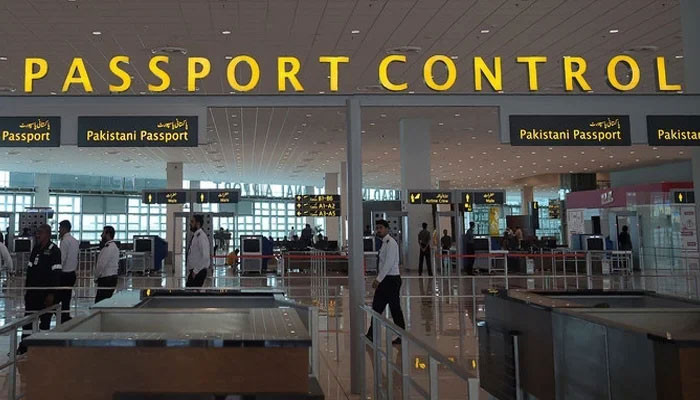Unprecedented Brain Drain Grips Pakistan as Skilled Workers Seek Opportunities Abroad
Pakistan is currently grappling with a notable surge in the emigration of its skilled workforce. This issue, which has been a long-standing concern for developing nations, has become particularly acute in Pakistan in recent years.
Thousands of professionals, spanning various fields such as medicine, engineering, information technology, and education, are departing the country to pursue better prospects overseas.
While remittances from abroad provide some economic relief, the outflow of intellectual capital poses substantial risks to the nation’s long-term development.
Reports indicate that approximately 45,687 highly qualified professionals left Pakistan in 2023 alone. This figure is not an isolated peak. Overall migration statistics reveal that more than 862,625 individuals emigrated from the country in 2023, an increase from 832,339 in 2022 and a sharp contrast to the 288,280 departures recorded in 2021. This data suggests a fundamental shift in migration patterns, especially among educated youth, from seasonal or opportunistic to a more structural phenomenon.
Exodus of Professionals
The exodus comprises a significant number of university graduates (estimated at 90,000), physicians (2,500), engineers (5,500), and accountants (6,500). Their departure signifies not only the allure of higher wages and improved working environments abroad but also growing dissatisfaction with domestic opportunities, political instability, and economic difficulties.
Underlying Causes
The factors driving this trend are deeply rooted in Pakistan’s economic challenges, including persistent inflation, high unemployment rates, limited job growth, and political instability. Many highly educated professionals struggle to find suitable or stable employment. Issues such as a lack of meritocracy, limited career advancement opportunities, and widespread uncertainty are frequently cited as primary reasons for emigration.
Moreover, the nation’s strained healthcare and education systems, insufficient research infrastructure, and restricted access to global networks are pushing many of its most talented individuals to seek stability and opportunity elsewhere.
Economic Impact and Remittances
Despite the grim outlook, there is a positive financial aspect. Remittances from Pakistanis working abroad totaled $23.8 billion between July 2023 and April 2024 and have since exceeded $38 billion for the fiscal year ending in June 2025. These inflows are crucial in bolstering foreign exchange reserves and supporting households grappling with rising living expenses.
However, experts warn that while remittances offer short-term economic assistance, they do not compensate for the long-term developmental costs associated with the loss of human capital. It is akin to gaining financial resources while simultaneously losing productive capacity.
The departure of skilled professionals deprives the nation of individuals who could otherwise contribute to national development through innovation, public service, and entrepreneurial activities. Every doctor trained at a public institution who chooses to leave Pakistan represents a taxpayer-funded investment that now benefits another nation’s healthcare system.
The consequences are already apparent, with overburdened hospitals, understaffed schools, and stalled technological advancements. The healthcare sector, in particular, is struggling to cope with increasing patient volumes and a scarcity of skilled professionals.
Government Initiatives
In recent months, Pakistan has initiated efforts to transform this brain drain into a “brain gain.” Initiatives such as the Special Technology Zones Authority (STZA), Roshan Digital Accounts, and diaspora engagement programs by the Higher Education Commission are designed to leverage the expertise, investments, and global connections of overseas Pakistanis.
These endeavors represent positive steps, but their success hinges on political stability, effective governance, and an improved business climate. Overseas Pakistanis are unlikely to return or invest significantly unless they perceive Pakistan as a secure and opportunity-rich destination.
Urgent Need for Systemic Reform
Pakistan’s brain drain is no longer a silent phenomenon; it is a clear signal demanding comprehensive reform. Retaining talent must become a national priority, supported by improved education, job creation, merit-based governance, and the rule of law.
Unless significant and sustained efforts are made to address the underlying causes, Pakistan risks becoming a nation that exports its most talented individuals and imports the consequences through weakened institutions, hindered innovation, and diminished public services.
In today’s global landscape, talent is a valuable asset. Pakistan must confront the question of whether it can afford to continue losing its most precious resource.



Comments (0)
No comments yet. Be the first to comment!
Leave a Comment